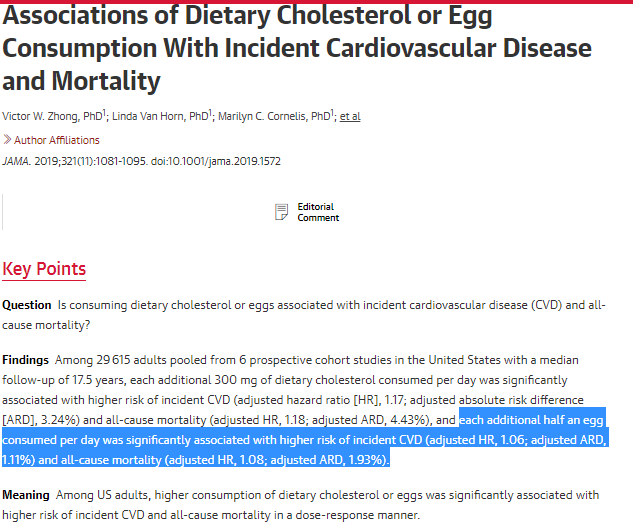It's also something that comes up on twitter constantly
Let me explain
That's a reasonable number of results, say 50,000
Is this figure generalizable to the population (i.e. can we use it to estimate the proportion of people who actually have diabetes?)
Would it be more or less generalizable?
Etc etc etc
GETTING MORE RESULTS DOESN'T NECESSARILY REDUCE THE IMPACT OF THESE BIASES
We've got more people, which makes the estimate more precise, but it doesn't make it more generalizable to the population
The answer? Bigger sample size makes NO DIFFERENCE to generalizability. It's the QUALITY not QUANTITY of the sample (mostly)
BUT they had very different populations
These are very different
Chinese people who eat more eggs are healthier
Americans who eat more eggs are less healthy
BOTH OF THESE THINGS CAN BE TRUE
Realistically, it's likely just the differences between the settings for the studies
Bottom line, bigger studies are not always better it's more complicated than that
















